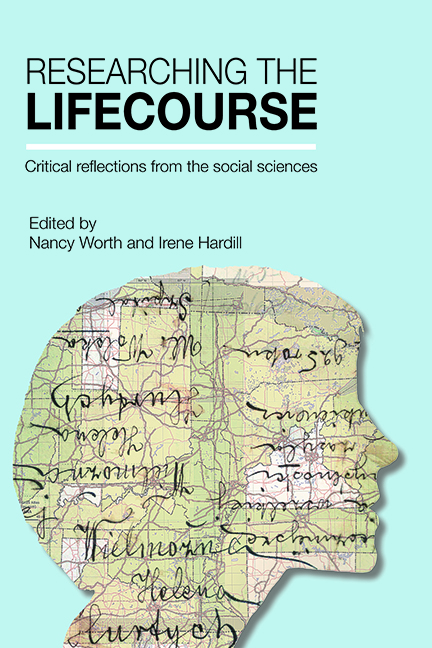thirteen - Using an intersectional lifecourse approach to understand the migration of the highly skilled
Published online by Cambridge University Press: 08 March 2022
Summary
Introduction
Understanding why people decide to move is a complicated enterprise (Bertaux-Wiame, 1979; Ni Laoire, 2000). Although migration may be a straightforward demographic event, the context in which it occurs and the mechanisms underlying it are often highly complex, and require careful study. To begin with, it is important to consider the individual role of the migrant. To what extent do people move freely from one place to another, and to what extent are their movements impacted by structural forces and constraints? Traditional models used for understanding migration decision making have typically emphasised either agency or structure but seldom both; moreover, some studies focus on the macro processes that ‘push’ or ‘pull’ certain categories of people towards certain environments, while others focus on the micro processes by which individuals make the decision to move (Halfacree and Boyle, 1993, p 334). Until recently, bringing the macro and the micro perspective together under a single theoretical framework was seldom attempted. Bridging these theoretical gaps – between structure and agency, and between micro and macro approaches – therefore remains an important challenge for researchers who want to understand migration in new and innovative ways.
The literature on skilled migration is perhaps in particular need of new theoretical and methodological approaches. Traditional approaches to the study of highly skilled migration emphasise economic motivations. Macro approaches treat labour as something similar to capital, which flows freely between countries to meet market demands. Microeconomic theories (such as human capital theory) emphasise individual migrants’ determination to maximise their economic position by finding the best return possible on their skills and education (van Ham et al, 2001). There are, however, many problems with the underlying assumptions of these migration theories. Macro approaches assume no barriers to labour movement. But in reality, policy continues to play a role in directing the flow of labour between countries. Who moves where may be influenced by immigration policies which target certain educational, occupational and skill categories while restrictive policies deter so-called ‘undesirable’ immigrants. Microeconomic theories, in their turn, do not consider ‘informal training or the role of institutional factors, discrimination and other factors that lead to imperfections in the labour market’ (Iredale, 2001, p 8).
- Type
- Chapter
- Information
- Researching the LifecourseCritical Reflections from the Social Sciences, pp. 231 - 246Publisher: Bristol University PressPrint publication year: 2015



